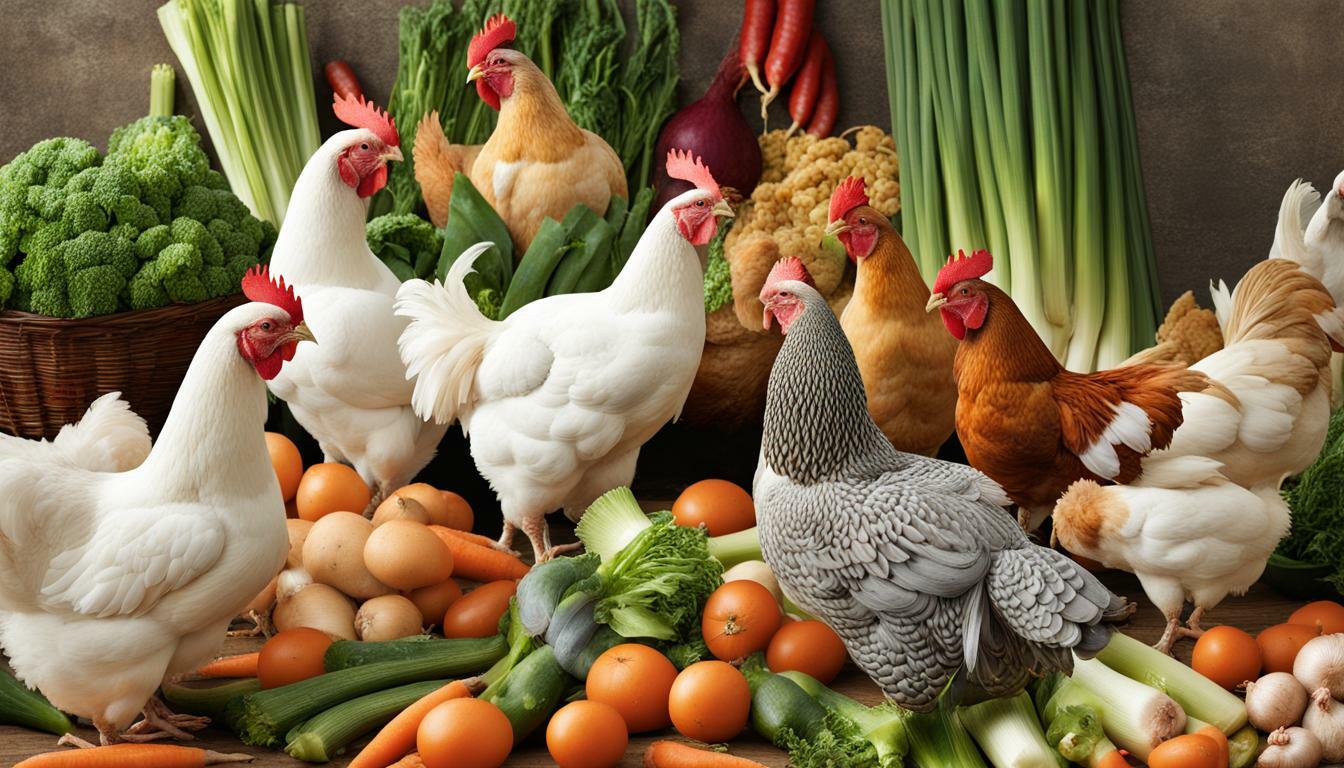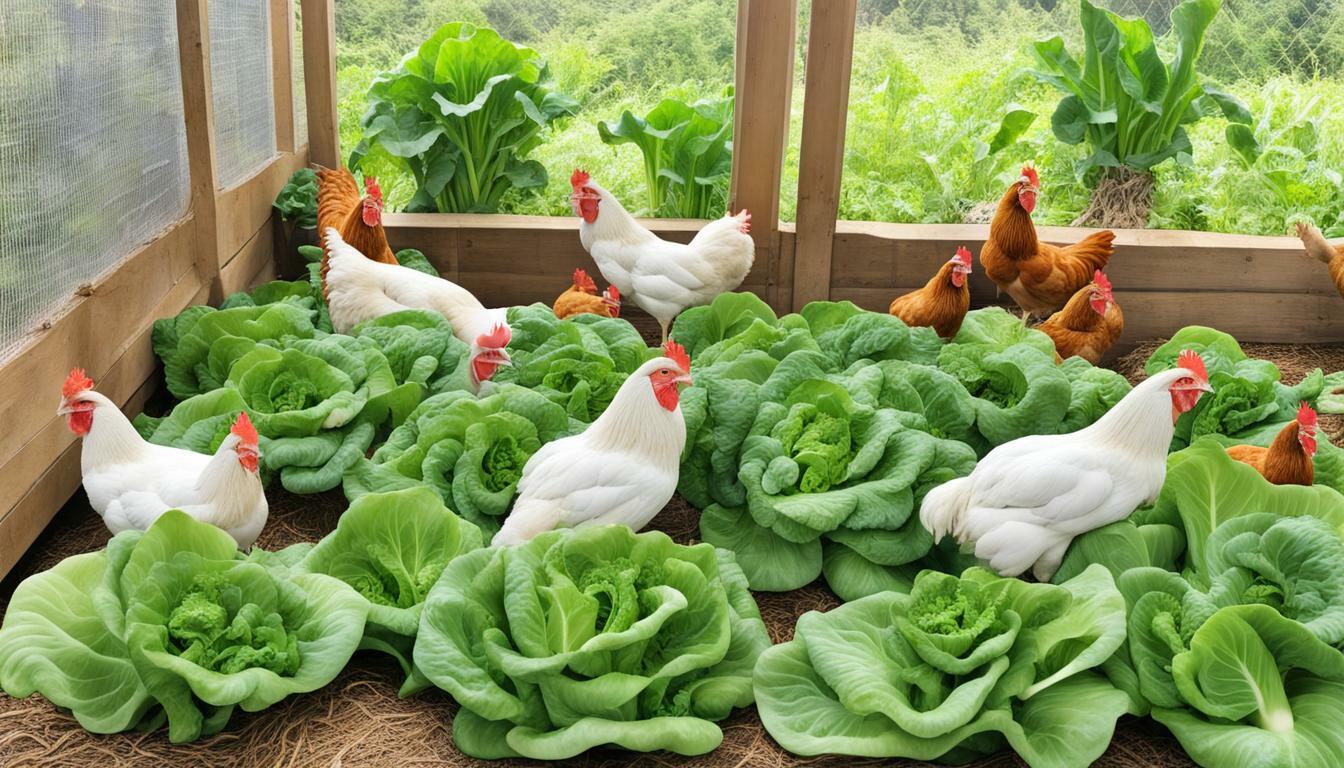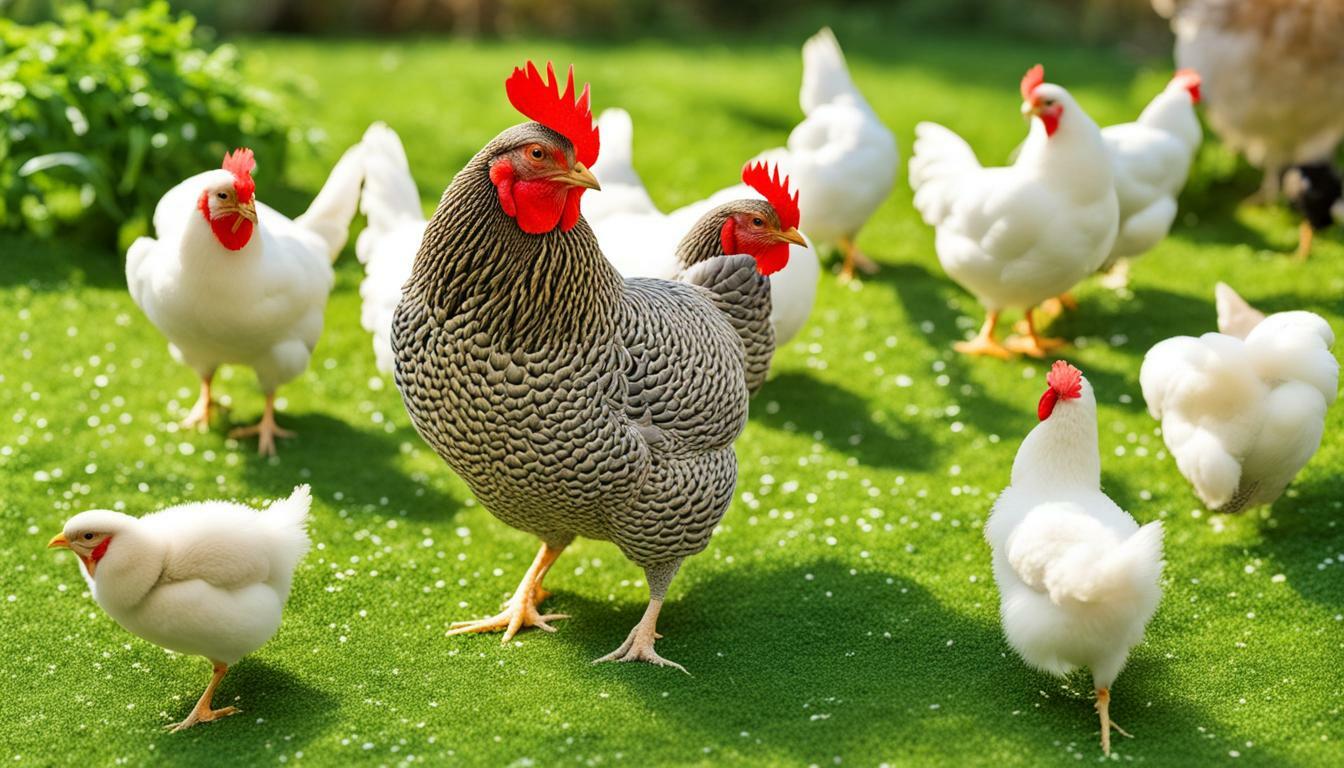Can Chickens Eat Ginger? Find Out the Benefits And Precautions

Table of content:
- What is Ginger?
- Is Ginger Good for Chickens?
- Can Chickens Eat Raw Ginger?
- How Much Ginger Should I Give My Chickens?
- Will Ginger Help Digestive Issues in Chickens?
- Does Ginger Have Any Negative Effects on Chickens?
- What Part of the Ginger Plant Can Chickens Eat?
- Should I Feed Ginger to Chickens Daily or Only Occasionally?
- Can Baby Chicks Eat Ginger Too?
- Are There Risks to Feeding Chickens Ginger?
- Final Thoughts
Ginger is a common ingredient used in many cuisines around the world. But is it safe for chickens to eat? This article provides a comprehensive guide on feeding ginger to chickens, including the benefits, risks, and how much to feed.
What is Ginger?
Ginger is a flowering plant that originated in China. The rhizome or root of the ginger plant is commonly used as a spice and flavoring agent. It has a peppery, slightly sweet taste.
Ginger contains compounds like gingerol, shogaol, zingerone, and oleoresin which are responsible for its pungent flavor. These compounds also give ginger its medicinal properties.
Is Ginger Good for Chickens?
Ginger can provide some benefits when fed to chickens in moderation. Here are some of the main advantages:
Aids Digestion
Ginger increases bile secretion and helps stimulate gastric juices. This can improve digestion in chickens. The active compounds in ginger may help with common digestive issues like diarrhea.
Anti-Inflammatory Effects
Ginger has anti-inflammatory properties. It may help reduce inflammation in the digestive tract and joints of chickens. This can support healthy digestion and mobility.
Immune System Support
Ginger can help strengthen the immune response in chickens. Compounds like gingerol have antioxidant effects that help fight illness and disease. This is especially useful in chicks.
Increase Egg Production
Some chicken owners report that feeding ginger increases egg production. This may be due to its positive effects on digestion and immunity. More research is needed to confirm this benefit.
So in general, ginger appears to support the health and productivity of backyard chickens. But it should be fed carefully and in moderation.
Can Chickens Eat Raw Ginger?
Yes, chickens can eat raw, fresh ginger root. In fact, raw ginger may be more beneficial than cooked ginger.
Cooking ginger reduces the level of gingerol – one of the main active compounds. So feeding raw ginger provides the full benefits.
Make sure to peel the ginger before feeding it to chickens. The skin is quite tough and fibrous which can be hard for them to digest.
Cut the ginger into small pieces or grate it to make it easier for the chickens to eat. Mix in with their feed or offer it free choice in a separate dish.
How Much Ginger Should I Give My Chickens?
Ginger should be fed in moderation to avoid any potential adverse effects. Here are some general guidelines on how much to feed:
- For adult chickens – Around 1-2 inches of fresh ginger root 2-3 times per week is sufficient.
- For chicks – Give just 0.5-1 inch of ginger 2-3 times weekly.
Ginger is quite potent so more is not necessarily better. Always start with small amounts and gradually increase to observe the effects.
Monitor your chickens’ droppings when feeding ginger. Loose droppings or diarrhea may be a sign they are getting too much. In this case, reduce the amount or frequency.
Also, keep in mind that commercial poultry feed contains sufficient nutrients for chickens. Ginger should be an occasional supplement and treat. It should not make up a large part of their diet.
Will Ginger Help Digestive Issues in Chickens?
Yes, ginger can be used to help manage common digestive problems in chickens like:
- Diarrhea
- Constipation
- Crop impaction
- Parasites
The carminative effect of ginger helps relax the gastrointestinal tract. This can provide relief from cramping, gas, and bloating.
Ginger also stimulates digestion, which helps improve gut motility and nutrient absorption. The antispasmodic effects ease muscle spasms associated with diarrhea.
For constipation, ginger acts as a mild laxative to support regular bowel movements. Gingerol may also help eliminate intestinal worms and other parasites.
For chickens with crop issues, ginger encourages digestion and may help clear crop impactions. Consult a vet if crop problems persist.
So using ginger occasionally may be beneficial, but ensure it does not worsen diarrhea symptoms. Only give to chicks with vet approval.
Does Ginger Have Any Negative Effects on Chickens?
When fed in moderation, ginger is considered safe for chickens. But there are some potential side effects to be aware of:
- Diarrhea or loose droppings – Too much ginger can irritate the gut.
- Crop slowing – Large amounts may slow down the crop.
- Skin irritation – Ginger juice may irritate the skin if chickens walk through it.
- Drug interactions – Ginger may interact with blood thinners. Avoid use before surgeries.
- Affect egg taste – This can cause a fishy egg taste in some chickens.
Monitor your flock when first feeding ginger. Reduce the amount given if any chickens show signs of diarrhea or other adverse effects.
Never feed chickens anything moldy as it can cause illness. Only feed fresh, high quality ginger.
What Part of the Ginger Plant Can Chickens Eat?
Chickens can eat the following parts of the ginger plant:
- The rhizome – This is the underground stem commonly called ginger root. Peel it and cut it into pieces before feeding.
- Leaves – The long, pointed leaves are edible for chickens. They have a mild gingery taste.
- Stems – The above ground stems can be fed but may be fibrous.
Avoid feeding chickens these ginger plant parts:
- Flowers & seeds – Ginger flowers and seeds are safe but offer minimal benefits.
- Skin – The skin is very fibrous and tough to digest. Always peel before feeding.
- Moldy or rotten ginger – This can cause illness. Only feed fresh, high quality ginger rhizomes.
So focus on feeding the peeled, chopped ginger root. The leaves can also be fed as a supplemental treat in moderation.
Should I Feed Ginger to Chickens Daily or Only Occasionally?
It’s best to limit ginger to only occasional feeding. Using it 1-3 times per week is sufficient to provide benefits.
Daily ginger consumption may cause digestive upset. The compounds also build up in the body over time.
Rotating ginger with other healthy supplements helps provide variety. Some alternatives include:
- Pumpkin
- Squash
- Berries
- Leafy greens
- Herbs like oregano, thyme, and mint
Varying supplements ensure chickens get a wide range of nutrients and phytochemicals naturally. Avoid overusing any single supplement, including ginger.
Also, remember that chickens typically don’t require many supplements added to a complete feed. Use ginger as an occasional boost rather than a daily necessity.
Can Baby Chicks Eat Ginger Too?
Ginger is safe for baby chicks but only in very small amounts. Chicks under 4 weeks old should not be given ginger.
After 4 weeks, introduce ginger slowly. Start with just a 1/4 inch piece every 3-4 days.
Watch for any signs of digestive upset like pasty vent or loose droppings. Discontinue use if this occurs.
Never give ginger instead of electrolytes and medications if chicks are sick or stressed. Get vet advice before using ginger to treat medical conditions in chicks.
Once chicks are 8-12 weeks old, the guidelines for adult chickens can be followed. But always start with small pieces given infrequently.
Chicks have sensitive digestive systems. Use extra caution when first introducing new foods like ginger.
Are There Risks to Feeding Chickens Ginger?
While ginger is considered safe for chickens, here are a few precautions:
- Start slow – When first feeding, go low and slow to check for tolerance.
- Monitor effects – Watch for loose droppings, crop slowing, and skin irritation.
- Use fresh – Do not use moldy, rotten, or old ginger.
- Peel before feeding – The skin is difficult to digest.
- Avoid overfeeding – Too much can irritate the digestive tract.
- Prevent access to growing areas – Chickens may dig up and consume too much ginger.
- Drug interactions – This may negatively interact with blood thinners.
- Don’t rely on it solely – Commercial feed provides balanced nutrition.
Follow suggested feeding guidelines and monitor chickens closely. Reduce or discontinue use if any negative effects occur. Consult a vet if concerned about a chicken’s health.
Final Thoughts
In conclusion, ginger can be a healthy supplement for backyard chickens when used properly. It provides digestive and immune supporting benefits thanks to natural compounds like gingerol. However, moderation is key as overconsumption may cause adverse effects. Follow suggested guidelines on amounts and frequency, and monitor chickens closely. Use fresh, high quality ginger rotated with other supplements. With some care and caution, ginger can be a valuable addition to a chicken’s diet.
Welcome. I’m Adreena Shanum, the proud owner of this website, and I am incredibly passionate about animals, especially poultry. I founded adreenapets.com as a labor of love, stemming from my desire to share my knowledge and experiences with poultry enthusiasts worldwide.




